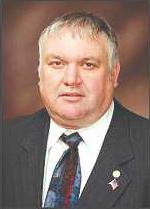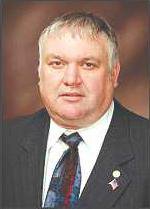A Kansas Senate bill aimed at expanding the corporate farming opportunities in the state would bolster farming in general, say supporters of the measure known as the Kansas Agricultural Growth and Rural Investment Initiative. However, detractors of SB 191 say it would pave the way for corporate farms to overrun the state’s family farm tradition.
“Basically, what we want to do is create economic development for the state,” said Keith Miller with the Barton County Farm Bureau. The organization has come out in support of the measure, which would replace a law enacted in the 1930s and many believe to be outdated.
“Kansas is known for producing ag products,” Miller said. “Why not expand what we’re good at?”
He said opponents have a point. But, Farm Bureau researched the bill closely and is of the opinion it would be a good move.
The bill was introduced in the Senate Committee On Federal And State Affairs Feb. 13, referred to Agriculture Committee Feb. 14 and referred to Committee on Natural Resources Feb. 18. The most recent hearing took place March 7.
Generally speaking, it would amend corporate farming law in Kansas by defining and establishing the limits for “agricultural business entities.” Any agricultural business entity would be permitted to operate anywhere in the state. The bill would also amend the definitions of “limited agricultural partnerships,” “family farm corporations,” “authorized farm corporations,” “limited liability agricultural companies,” and “family farm limited liability agricultural companies.”
The Department of Agriculture and Department of Commerce both stated enactment of SB 191 would have no fiscal effect on agency operations, respectively. Likewise, the Kansas Association of Counties reported that the bill would have no effect on local governments.
“Growing agriculture will grow the Kansas economy,” said Kansas Secretary of Agriculture Dale Rodman in support of the legislation. “In the past, Kansas has shut the door on growth in agriculture by prohibiting or restricting certain farms from operating in the state.”
Rodman said Kansas is one of just nine states in the country that prohibit or restrict certain farms from doing business inside its borders. Notably, the courts have struck down the corporate farming restrictions in three of those states.
For farm and ranches of all sizes, the bill represents a unique opportunity to access new markets, to diversify operations, and to attempt a new strategy to invigorate rural communities and offer young people a rural alternative, said Steve Baccus, Ottawa County farmer and President of Kansas Farm Bureau. “These and a host of other reasons are why the state’s largest farm organization, Kansas Farm Bureau, is supporting it.
“The current law is outdated,” Baccus said. “It lists 18 exemptions that allow corporations to engage in production agriculture in Kansas. Yet even with these exemptions, agribusiness, hog, dairy and poultry producers have approached Kansas about the possibility of locating here, only to learn that current corporate farming laws would hamper their ability to operate efficiently, or at all.”
“These industries are now modern, efficient and excellent corporate citizens,” Rodman said.
During testimony in support of the bill, Kansas Farm Bureau Vice President Richard Felts said removing the real or perceived hurdles to bringing a new business venture online can encourage growth in the industry and in turn attract jobs and residents to rural communities.
“These new jobs and new residents in turn help diversify economies and bring better markets to producers and a brighter future for families who know, understand and want to continue to live and thrive in rural Kansas,” Felts said.
Felts, who farms in Montgomery County, spoke on behalf of Farm Bureau members across Kansas. His family has a third-generation row crop and pork production operation. Farmer and Kansas Farm Bureau board member Jerry McReynolds of Rooks County testified in favor of the bill on behalf of the Kansas Board of Agriculture. KFB Board member Stacey Forshee, who farms with husband David in Cloud County, provided written testimony in support.
There is real data to show that changing the law will benefit Kansas, rural residents and small operations.
“The facts show that when comparing land values from 15 states, both with and without corporate farming restrictions, there was no correlation between land values and restrictions on corporate farms,” Baccus said. “Also, the size of farms in Kansas was compared to eight states without corporate farming restrictions.
Kansas ranked second largest average farm size at 702 acres. In fact, the number of smallest farms among these eight states grew 5.24 percent compared to 0.35 in Kansas, and the number of large farms grew 55 percent, compared to 110 percent in Kansas.”
Kansas Attorney General Derek Schmidt has said the current law may be unconstitutional.
“Our farmer and rancher members are constantly concerned about the next generation,” Baccus says. “It is time to update this out-of-date statute, and help our rural communities grow.”
Bill would boost farming in state, ag officials say
Corporate farming measure has met with some opposition





